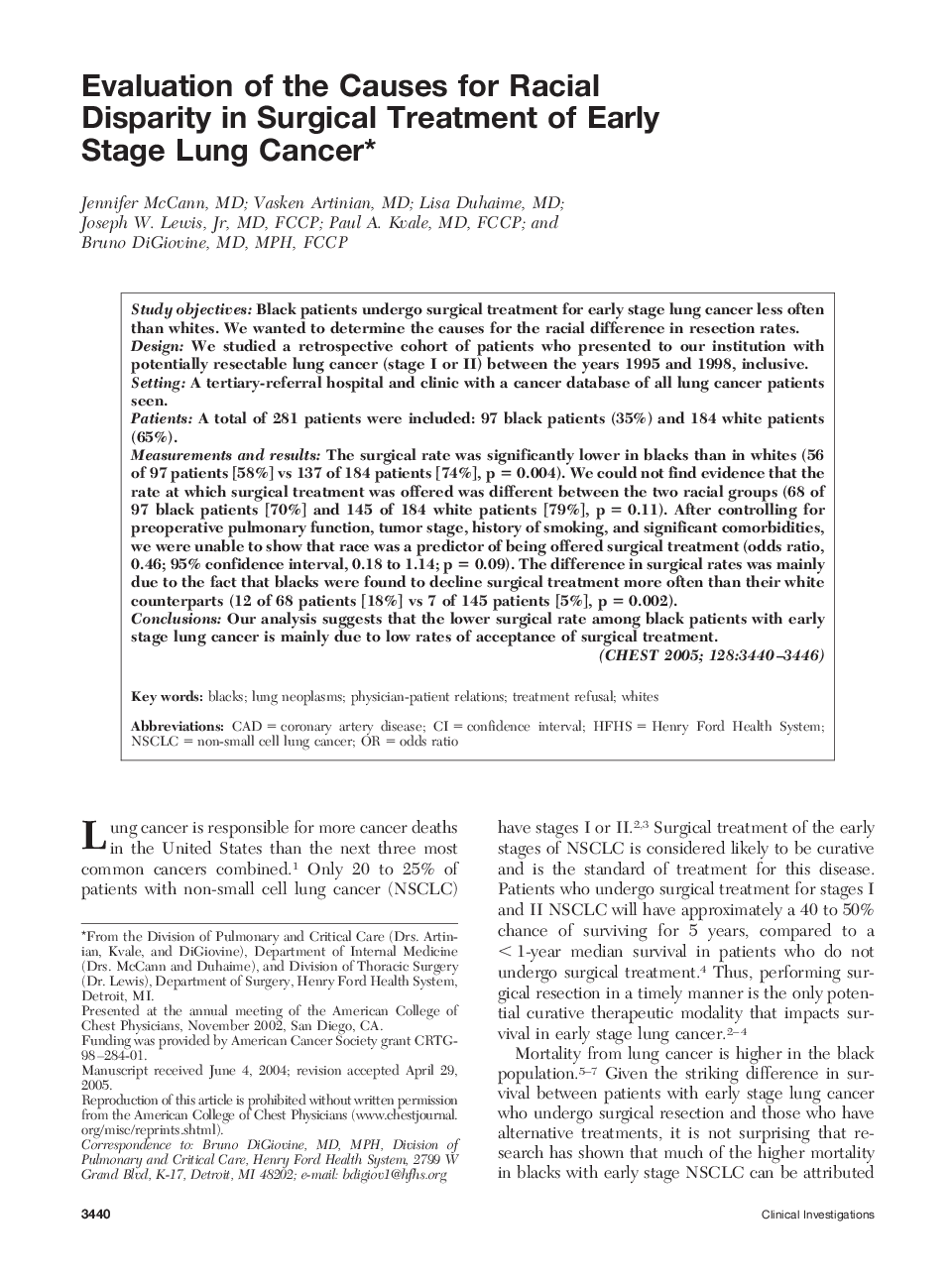| Article ID | Journal | Published Year | Pages | File Type |
|---|---|---|---|---|
| 2906084 | Chest | 2005 | 7 Pages |
Study objectives: Black patients undergo surgical treatment for early stage lung cancer less often than whites. We wanted to determine the causes for the racial difference in resection rates.Design: We studied a retrospective cohort of patients who presented to our institution with potentially resectable lung cancer (stage I or II) between the years 1995 and 1998, inclusive.Setting: A tertiary-referral hospital and clinic with a cancer database of all lung cancer patients seen.Patients: A total of 281 patients were included: 97 black patients (35%) and 184 white patients (65%).Measurements and results: The surgical rate was significantly lower in blacks than in whites (56 of 97 patients [58%] vs 137 of 184 patients [74%], p = 0.004). We could not find evidence that the rate at which surgical treatment was offered was different between the two racial groups (68 of 97 black patients [70%] and 145 of 184 white patients [79%], p = 0.11). After controlling for preoperative pulmonary function, tumor stage, history of smoking, and significant comorbidities, we were unable to show that race was a predictor of being offered surgical treatment (odds ratio, 0.46; 95% confidence interval, 0.18 to 1.14; p = 0.09). The difference in surgical rates was mainly due to the fact that blacks were found to decline surgical treatment more often than their white counterparts (12 of 68 patients [18%] vs 7 of 145 patients [5%], p = 0.002).Conclusions: Our analysis suggests that the lower surgical rate among black patients with early stage lung cancer is mainly due to low rates of acceptance of surgical treatment.
